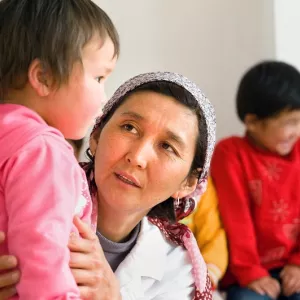Disparate health and nutrition impacts of income shocks across different household members: Evidence from Kyrgyzstan
BY KATRINA KOSEC AND LUCIA CARRILLO The COVID-19 pandemic is hitting poor and vulnerable countries the hardest, poverty rates are increasing worldwide, and households are experiencing higher levels of income volatility. According to our new study focusing on Kyrgyzstan, such fluctuations can significantly reduce the health and nutrition status of children under 5. However, there is a silver lining: Income shifts can simultaneously

Disparate health and nutrition impacts of income shocks across different household members: Evidence from Kyrgyzstan
BY KATRINA KOSEC AND LUCIA CARRILLO
The COVID-19 pandemic is hitting poor and vulnerable countries the hardest, poverty rates are increasing worldwide, and households are experiencing higher levels of income volatility. According to our new study focusing on Kyrgyzstan, such fluctuations can significantly reduce the health and nutrition status of children under 5. However, there is a silver lining: Income shifts can simultaneously reduce the incidence of overweight and obesity in adults (primarily women).
Photo credit: David Snyder/UN Women

